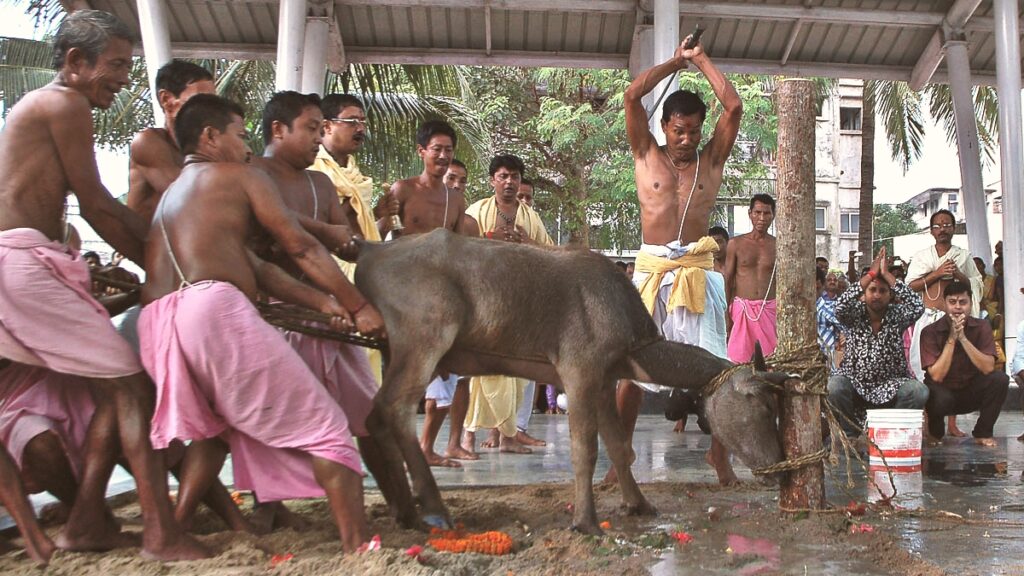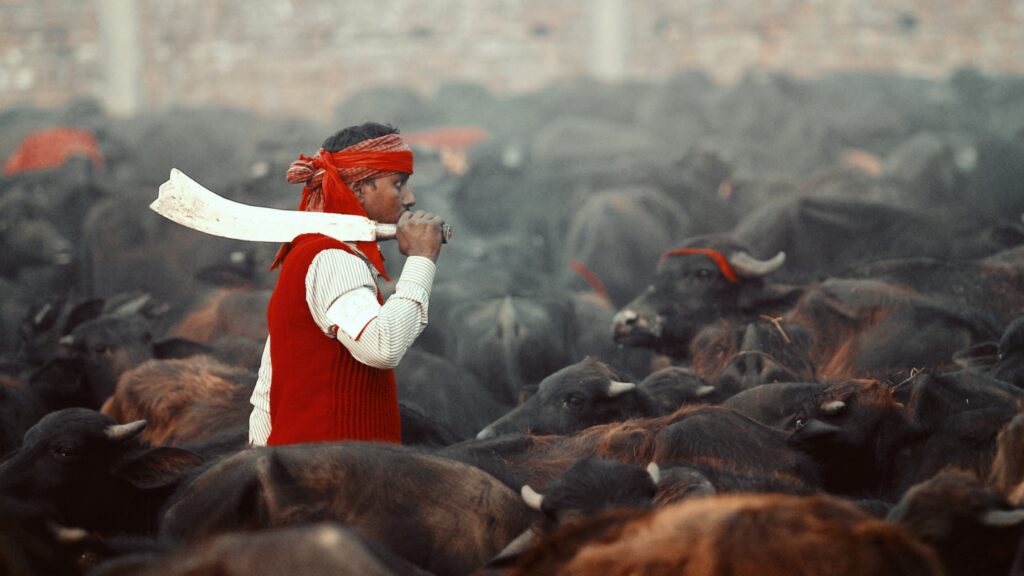
Author’s comments on this article :
The Beef is now a hotly debated topic. The debate is nothing new, ever since the days of independence struggle, a section of Nationalists, sought to give to the Indian Nationalism, the twist of a Hindutwa Nationalist obscurantism. Even in the Constituent Assembly, ban on cow slaughter and ban on beef was demanded, but the liberal intelligentsia, under the leadership of luminaries like Nehru and Ambedkar, resisted. Even Gandhi who had some backdated idea about religion, opposed the move, as it was agahist the spirit of India's National diversity and spirit of tolerance.
This is corroborated by other research works sponsored by the Ramakrishna Mission established by Swami Vivekananda himself. One of these reads: “The Vedic Aryans, including the Brahmans, ate fish, meat and even beef. A distinguished guest was honoured with beef served at a meal. Although the Vedic Aryans ate beef, milch cows were not killed. One of the words that designated cow was aghnya (what shall not be killed). But a guest was a goghna (one for whom a cow is killed). It is only bulls, barren cows and calves that were killed.”
Cow sacrifice and beef consumption are mentioned in many Hindu scriptures. But devout Hindus generally do not want to accept it. Several of Vivekananda’s sayings about beef can be found in his writings and works and other books. This is evident from the fact that the ancient Hindus ate beef. All devout Hindus should know Vivekananda’s statements about beef to know the truth. Below are his quotes-
Hindus from North to South are only agreed
on one point, viz. on not eating beef.
—Swami Vivekananda
[Vivekananda speaking at the Shakespeare Club, Pasadena, California, USA (2 February 1900) on the theme of ‘Buddhistic India’, cited in Swami Vivekananda, The Complete Works of Swami Vivekananda, Vol 3 (Calcutta: Advaita Ashram, 1997), p. 536.]
In one of the lecture by Swami Vivekananda, he told: “There was a time in this very India when, without eating beef no Brahmin could remain a Brahmin” [1]
So, Does it mean that Brahmins ate beef? or what message does Vivekananda try to convey?

I believe Swamiji must have been referring to the few verses in Dharma Sutras that do mention consumption of bovine meat. The Apastambh Grihya Sutra mentions that cattle may be slaughtered when a guest arrives, or at the occasion of marriage or as an offering to the ancestors in the Shraadh ceremony. [2]
These are the occasions for killing a cow: (the arrival of) a guest, (the Ashtaka sacrific eoffered to) the Fathers, and marriage.
There was a time in this very India when, without eating beef, no Brahmin could remain a Brahmin; you read in the Vedas how, when a Sannyasin, a king, or a great man came into a house, the best bullock was killed; how in time it was found that as we were an agricultural race, killing the best bulls meant annihilation of the race. Therefore the practice was stopped, and a voice was raised against the killing of cows. [3]
and then in the next line it is mentioned that Vivekananda said “Therefore the practice was stopped, and a voice was raised against the killing of cows”.
If we did not eat beef and mutton, there would be no butchers. Eating meat is only allowable for people who do very hard work, and who are not going to be Bhaktas; but if you are going to be Bhaktas, you should avoid meat. [4]

Every man, in every age, in every country is under peculiar circumstances. If the circumstances change, ideas also must change. Beef-eating was once moral. The climate was cold, and the cereals were not much known. Meat was the chief food available. So in that age and clime, beef was in a manner indispensable. But beef-eating is held to be immoral now. [5]
The Brahmins at one time ate beef and married Sudras. (A) calf was killed to please a guest. Sudras cooked for Brahmins. [6]
You will be astonished if I tell you that, according to the old ceremonials, he is not a good Hindu who does not eat beef. On certain occasions he must sacrifice a bull and eat it. That is disgusting now. [7]
These are all historically recorded facts. To say that Swamiji was not well informed in these matters is just a fanciful way of looking at one’s own ancestry. We should accept the facts as they were but be always open to change according to the needs of time.
Reference
- The Complete Works of Swami Vivekananda/Volume 3/Lectures from Colombo to Almora/Reply to the Address of Welcome at Madura
- Apastamba Grihya Sutras – English Translation
- The Complete Works of Swami Vivekananda/Volume 3/Lectures from Colombo to Almora/Reply to the Address of Welcome at Madura
- The Complete Works of Swami Vivekananda/Volume 4/Addresses on Bhakti-Yoga/The Preparation
- The Complete Works of Swami Vivekananda/Volume 6/Notes Of Class Talks And Lectures/Notes Taken Down In Madras, 1892-93
- The Complete Works of Swami Vivekananda/Volume 9/Newspaper Reports/Part IIi: Indian Newspaper Reports
- The Complete Works of Swami Vivekananda/Volume 3/Buddhistic India

